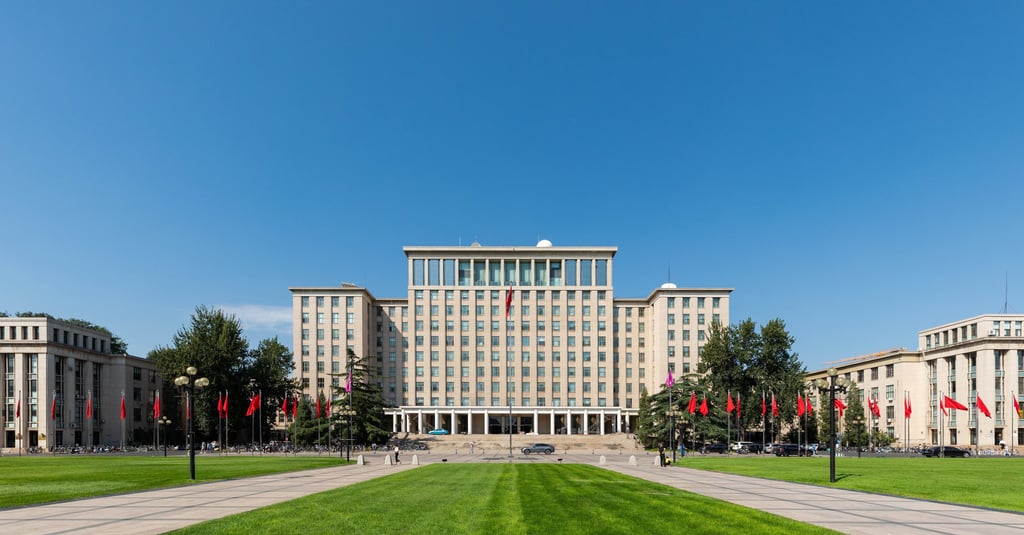China's Billionaires Are Building Universities to Drive Innovation and Stay Politically Favorable
As China pushes for self-sufficiency in high-tech industries, billionaire entrepreneurs are investing billions into private universities. These institutions align with national strategy, foster scientific innovation, and provide long-term economic and political benefits.
SCIENCE & TECH
Ke Press Global
2/9/20252 min read


In a bold move even for China’s wealthiest businessman, beverage tycoon Zhong Shanshan recently announced a 40 billion yuan (US$5.5 billion) plan to establish Qiantang University over the next decade. The founder of Nongfu Spring aims to create an institution focused on scientific research, cutting-edge technology, and cultivating elite talent.
Zhong's initiative is part of a growing trend of billionaire-backed universities in China, as the country’s business elite shifts its wealth into education. This aligns with Beijing’s push for national self-sufficiency in high-tech industries, especially as global competition intensifies.
Billionaires Funding China’s Tech Future
Zhong’s project follows other major entrepreneur-funded universities, such as:
Fuyao University of Science and Technology (FYUST) – Backed by a US$10 billion donation from Cao Dewang, chairman of Fuyao Group, this university will enroll its first students this year.
Eastern Institute of Technology (EIT) – Founded by semiconductor billionaire Yu Renrong, this 30 billion yuan research institution will specialize in applied technology.
Westlake University and Beijing Geely University – Pioneers in this trend, these institutions have already contributed to China’s industrial and technological strategy.
A report by the Hurun Research Institute found that 70% of China’s top donors prioritized education in 2024, up from 58% in 2023.
A Solution to China's Tech Talent Gap
China urgently needs skilled professionals in science and technology, as traditional universities struggle to keep pace with rapidly evolving industries.
Li Mingbo, deputy dean at the Guangzhou Institute of the Greater Bay Area, warns that without a new generation of experts, China risks falling behind in the global tech race. He notes that technological innovation is increasingly driven by enterprises rather than universities, making it logical for entrepreneurs to take the lead.
Qiantang University aims to:
Produce 15 top-tier experts annually
Attract 500 leading researchers
Educate 350,000 students
Meanwhile, Cao Dewang envisions FYUST as China’s answer to Stanford, with faculties specializing in materials science, artificial intelligence, mechanical engineering, and digital economics.
Strategic, Economic, and Political Benefits
For Chinese billionaires, investing in universities is both a strategic and profitable move. Simon Zhao, an associate dean at Beijing Normal University-Hong Kong Baptist University United International College, explains:
Aligning with national goals – Supporting China’s industrial strategy ensures government backing and political favor.
Economic stability – As China’s economic climate remains uncertain, investing in education is a safer, long-term bet.
Regulatory advantages – The private education industry faces fewer restrictions, making it an attractive investment.
Donald Dai, a Shenzhen-based tech executive, emphasizes the political importance of these donations:
"It’s politically correct to invest in science and technology. The top leadership won’t overlook those who contribute to strategic national development."
Xi Jinping’s Push for ‘Common Prosperity’
The rise of billionaire-backed universities follows President Xi Jinping’s calls for entrepreneurs to contribute to society. In 2020, Xi urged business leaders to follow the example of Zhang Jian, a Qing dynasty industrialist who founded over 300 schools.
By supporting national goals, China’s billionaires are securing both their legacies and their political standing—all while helping drive the country’s future innovation.
© 2026. Ke Press Global. A Ke Harbor Company. All rights reserved.
FOLLOW KE PRESS GLOBAL ON :
Contact us


